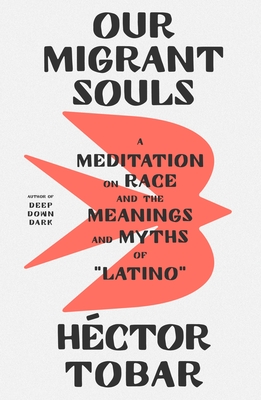Chapter 9: Lies
byIn Chapter 9, titled “Lies,” the author examines the experience of being Latino in the United States, focusing on how mainstream narratives often depict Latinos as powerless or overly simplified figures. The chapter begins by critiquing a North American activist, whose portrayal of immigrants seeking refuge centers only on her actions, while neglecting the individual stories and unique identities of the immigrants involved. This portrayal ultimately reduces these individuals to mere symbols of victimhood, devoid of agency or complexity. By doing so, it reflects a broader societal issue where media portrayals and public perception of Latinos often fail to recognize the multifaceted nature of their experiences. This oversimplified view contributes to a false and harmful narrative about Latinos, one that strips away their individuality and reduces them to a group of helpless victims.
The author shares their frustration with the continued presence of such stereotypes, which contribute to the damaging societal assumption that Latinos are inferior or inherently powerless. These simplistic representations serve as tools in political struggles, using immigrants as symbols of suffering for advocacy, rather than recognizing them as complex individuals with their own agency and dignity. The text highlights how this misrepresentation is often reinforced through media and literature, where Latinos are shown only as victims, instead of as people with rich personal histories and diverse experiences. By reflecting on the absence of nuanced portrayal in mainstream culture, the author laments the lack of genuine representation of immigrant lives, urging a more complex and realistic approach to understanding the experiences of Latino communities. The continued failure to acknowledge the depth of these experiences does a disservice to both the individuals involved and to society as a whole.
The chapter also delves into the absurdity of conspiracy theories aimed at Latino immigrants, comparing them to long-standing prejudices directed at other marginalized groups. These unfounded fears are used to fuel negative perceptions of immigrants, further perpetuating the stereotype of Latinos as a threat to society. These theories have dangerous implications, stripping Latino individuals of their humanity and reducing them to scapegoats in political rhetoric. The author emphasizes the consequences of such dehumanization, urging the need for a shift in how Latino immigrants are perceived. By focusing on stories of resilience and agency, like that of Gisel Villagómez, a DACA recipient with a rich personal history, the author advocates for a more complex understanding of the Latino experience. These individual narratives provide the necessary counterpoint to the damaging stereotypes that often define the public conversation about Latino immigrants.
Additionally, the chapter addresses the struggles of DACA recipients, emphasizing the psychological toll of living under the threat of an arbitrary and often dehumanizing immigration system. The labels imposed on individuals by the immigration system can be seen as stripping them of their dignity, reducing them to mere categories or legal terms. This process, while bureaucratic, has real-world implications on the mental health and emotional well-being of those affected. By calling attention to the arbitrary nature of these labels, the author advocates for a more humane approach to immigration, one that recognizes the full humanity of those involved. The psychological burden of this system, along with the lack of recognition for the complexities of immigrant lives, is a central theme of the chapter.
Finally, the author reflects on personal family history, using it as a lens to explore the broader struggles for representation and dignity within Latino communities. These personal stories help to underscore the ongoing battle for visibility in American society, illustrating how Latino individuals continue to fight for respect and recognition within the social structures that marginalize them. By tying these individual experiences to larger societal trends, the author emphasizes the importance of understanding Latino identity as multifaceted and evolving. The chapter calls for an end to the oversimplified victimhood narrative and a shift toward a more accurate and inclusive portrayal of Latino lives. It challenges readers to see beyond stereotypes, recognizing the resilience, strength, and humanity of Latino individuals while urging a more authentic and diverse conversation about their experiences.

